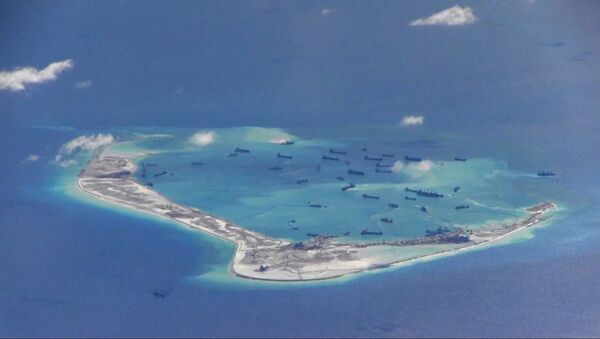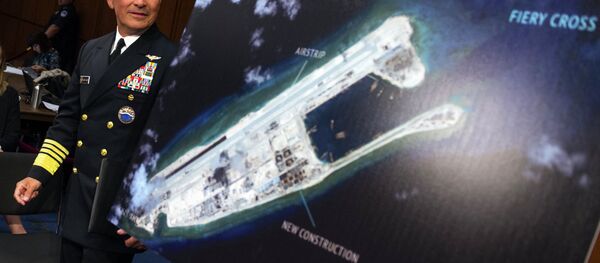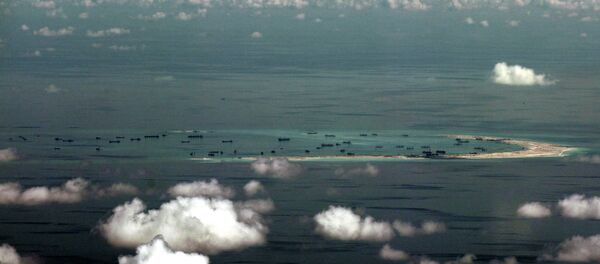Speaking before a US Senate hearing on Thursday, commander of the US forces in the Pacific, Admiral Harry Harris, expressed his concerns over China’s construction of a third airstrip on its artificial islands in the South China Sea.
Claiming that the runways present a "great concern militarily," Harris recommended that the Pentagon conduct drills to enforce freedom of navigation and flight "in the South China Sea against those islands that are not islands."
On Friday, the Chinese Foreign Ministry responded to the admiral’s comments, saying it was "extremely concerned."
"We demand that the relevant country speak and act cautiously, earnestly respect China’s sovereignty and security interests, and not take any risky or provocative acts," Foreign Ministry spokesman Hong Lei said during a daily news briefing.
Hong added that China opposed "any country challenging China’s sovereignty and security in the name of protecting freedom of navigation."
Washington has repeatedly expressed outrage over Beijing’s construction of artificial islands in the Spratly archipelago, citing fears that China could establish an air defense zone in the region. By sailing within 12 miles of the islands, some military officials hope to signal that the US does not recognize the archipelago as Chinese territory.
The Chinese government, however, has maintained that it has every right to build within its own territory, and that the islands will be used largely for humanitarian purposes.
Issues of sovereignty will likely come up during Chinese President Xi Jinping’s weeklong visit to Washington on Monday, as well as cybersecurity concerns.
With roughly $5 trillion in trade passing through the waterway annually, the South China Sea is a highly contested region. While China claims over 90%, there are overlapping claims from Malaysia, Taiwan, Brunei, Vietnam, and the Philippines.
The United States has no territorial claims in the South China Sea.




